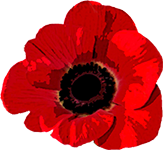 |
 |
 |
The Halifax Courier has been providing news to the citizens of Halifax, Calderdale, West Yorkshire, England since June 28, 1892.
Warley Soldier's Last Battle
We much regret to report that Arnold, aged 28, the second son of Mr. Tom Sutcliffe, Haigh House, Warley has been so severely wounded as to lose a leg - which leg is not stated. This unhappy news is received a letter from No. 8 Casualty Clearing Hospital, France, and sent by the chaplain, Rev. A. F. Penn, Feb. 26. Amputation took place the night before. "This afternoon”' the writer adds, " he was very cheerful and brave. His brother has been informed ... He is in excellent hands here." This reassuring addendum was made at mid day, Sunday. "His surgeon and the sister are very proud of him, as it was an extremely near thing but, thank God, he has rallied, and as he says to day he hopes before long to be back in ' Blighty.'" Arnold, who returned from a visit home on the 16th, was in the 3rd Canadians, grenade section. He had been on a ranch with his brother, Herbert, who went to the front in April, Arnold following in two months. The brother also visited home recently.
A Trip To Blighty
Joy And Anguish Of A Wounded Soldier
Ex Pte Arnold Sutcliffe, son of Mr. Tom Sutcliffe gives a vivid account of the joys and troubles of the soldier who gets a "Blighty”. Pte. Sutcliffe had his leg amputated in France, was brought to the Bevan hospital in England, transferred to Sandgate, and is now back on his ranch in Canada. His father, Mr. Tom Sutcliffe, has for some time been on Y.M.C.A. work at Canterbury, and keenly interested in this task.
Arnold writes:
It really seems a long, long time since that eventful day, so far as my fortunes are concerned, when I left the trenches for the last time, carried ignominiously forth on a stretcher. Naturally, the events immediately preceding my exit from active warfare left a vivid impression on my mind, and it might be of interest to recall them. I recollect that after a very recherché dinner, in which fried steak and prunes figured prominently, we bombers were squatted in our palatial 'dug-out' puffing away at 'Chairman' and various curious brands of 'fags' when the waterproof door was shoved aside by our gallant commander who ordered us to get out and get busy. A German working party had been located grubbing away at his trenches a matter of 40 yards or so in front of us, and the powers that be had decided to do a little "straffing." So we hauled out our grenade guns and a supply of the famous "Hale" grenades and the air was very soon filled with the weird whistlings of the deadly little missiles. Of course, Fritz wouldn't stand for this treatment, and soon started to retaliate, both in kind and with other and larger varieties of the genus bomb. He even returned some of our own grenades which had failed to explode, and another type of bomb, hitherto strange to me, was a big dumb bell, which came whirling over, steadied in its flight by a tail part of the way and which made quite a respectable explosion when it landed. I kept a wary eye on these Hun devices, which were easy to follow in their flight and after a while, the excitement simmering down a bit, two or three of us sauntered back to the dug out.
We were again rudely awakened by a terrific explosion just outside, which made our home jump like a rabbit, and soon learned that a small trench mortar had just missed getting our goat. Out again, and a fresh supply of grenades gathered up, myself and a mate were squatted together on a low bank, discussing a good place to fire from, when I heard a subdued humming noise overhead, and before my dull wits could tell me to duck and take cover the explosion came and put me to sleep for a few seconds. Fritz had at last registered a hit on our Bombers' dug-out, which up to that time had borne a charmed life, and blowing in the walls and liberally sprinkling with shrapnel our section corporal, a fine, big chap named Morrison. When I came out of the trance I found myself still sitting in the same position, with half a dozen grenades still in my left hand, luckily untouched. My right arm had contracted a slight pain, my right knee was throbbing in a very unpleasant manner, and my left ankle was smarting like the deuce. I wasn't taking a vast amount of interest in the proceedings just then, but I remember Morrison rushing out of the dug out, his face streaming blood and shouting that he wasn't very bad, and to go ahead with the other fellow. Somebody yelled "stretcher bearer"and whilst they were coming up I noticed in a dull sort of a way that my knee was smashed to a pulp, and that a slab of my right arm had been neatly detached. However, with a little assistance I climbed aboard the stretcher, and we went staggering down the trench, the bearers casting fearful glances behind them in case of further complications from Fritz. We got out of the narrow communication trench after an effort, and passing down the road we came across another section of bombers. Some of them volunteered to take a hand, so for the stretch down to the first dressing station I had four bearers, and even at that I don't think they enjoyed themselves much, for I am a tidy weight. Our battalion doctor was on the job, and he soon had a couple of tourniquets rigged up, one around my thigh and the other encircling my arm above the muscle. He didn't look very cheerful but I managed to spring the time honoured gag about my proposed "trip to Blighty," and he cheered up a little. Then a couple of R.A.H.C. men took charge of my remains, and by degrees we got out to the Welverghem-road, where a wheeled stretcher was waiting, and then we trundled merrily along to the next dressing station.
My wounds were throbbing quite noticeably, despite a shot of morphia, and another shot of the soothing dope at the station didn't seem to cut any ice. Our doctor had also treated me to a couple of tots of demon rum before parting with me, and although at first it soothed my nerves somewhat, later on in the evening I parted with it rather suddenly in a fit of vomiting. At No. 2 I had to wait patiently for an hour or so alongside several other unfortunates, but eventually our ambulance arrived, and we started on a weary trip over an infernally rough road, or so it appeared to my poor shattered bones. By this time my arm might very well have belonged to an Egyptian mummy, the circulation being completely stopped by the tourniquet, and the feel of it almost gave me the creeps. The other band round the leg must have slipped somewhat and I could feel the blood pumping out at the knee. I yelled at the ambulance chap, but he didn't hear me, and I didn't feel enough alive to get very much alarmed.
Arriving at No. 3 station eventually a short rest was allowed, during which the offending tourniquet was tightened up and further dope shot into my arm. The final run down to No. 8 Clearing hospital at Bailleul was a wearisome business and could not by any means be termed a 'joy ride'. The weather was cold and snowy and I began to feel decidedly chilly, despite the fact that I was lying in a nice pool of gore. Have a hazy recollection of being hoisted upstairs and a little later upon the operation table where first of all an injection of saline was pumped into my veins to make up for the loss of blood. Then came the 'gas attack' and for a good many hours I was sunk in merciful oblivion.
It was just about daybreak next morning when I began to take notice of my surroundings and apart from a feeling of excruciating weakness felt quite happy and peaceful. There was no pain from the wounds and it was some little time before I realised that I had parted with a first class human leg, and that well above the knee. Sister informed me that I had had a very narrow squeak hovering for five or six hours on the verge, and given up once or twice by that excellent and cheerful doctor, Capt. Glenny, who had performed upon me with scalpel and saw. My arm was feeling quite human again, too. The tourniquet having been taken off, the wound proving to be only a surface one. What remained of my right leg was acting in a very peaceable manner and it continued the good work for a week afterwards, before starting upon an interminable course of throbbing and burning; the sensation curiously enough, seemed not to come from the stump but from the region where the leg and foot formerly stayed. Even to this day I can "feel my right foot" as the saying goes and wriggle my absent toes, the sensation being very acute during a change of weather.
The stay at Bailleul for a week was not unpleasant, my appetite gradually picking up. There were one or two painful episodes when the first few dressings were changed. The first time they gave me a dose of three minutes gas and I wasn't aware of the proceedings, but No. 2 made me sit up and let out a few frenzied yells, quite unnoticed by the doctor. The day after the operation I was pleasantly surprised to receive a visit from my brother Herbert who had managed with difficulty to get leave from the trenches to visit me. I noticed him coming in at the door with very gloomy countenance, for he told me he didn't expect to find me alive after the fearsome yarns my mates had told him. It is really wonderful how rumour flies about the trenches and magnifies the seriousness of wounds. According to one yarn I was dead before I reached the second dressing station, and another had it that I had both an arm and leg blown off. He was soon reassured however, and finally I think almost inclined to think with me that I was one of the lucky ones, going back home with a jolly good Blighty. Later on there appeared the cheerful round face of George Young, my chief dug out mate since entering the trenches. Both of them brought along a supply of dainties, which I am afraid I did not do full justice to.
At the end of a week I was deemed fit to go down the line, so they wrapped me up in my old grey blanket and downstairs I went on a stretcher, what remained of my worldly belongings in a little canvas bag by my side. From one of the top "bunks' of the ambulance I remember waving a cheerful adieu to the matron at No. 8, a very pleasant and capable lady hailing from Aberdeen. A few more bumps over the rough cobbles of the Bailleul streets, rather well known to me by reason of various surreptitious visits paid to the town from billets, and we drew up at the station where a Red Cross train was waiting, and a numerous array of R,A.M.C men busy transferring the wounded men. The bunks were built three tiers high along each side of the carriages, and I was lucky enough to draw a middle one, commanding a good view of the country we passed through. They certainly gave us lots of time to look around on our way down the line. Railway travel between the coast and the line is notoriously slow, and the trip down to Etaples, a matter of 70 or 80 miles, took a matter of 10 or 11 hours to negotiate. We did, however, make a rather big detour from Hazebrouch northwards, towards Poperinghe, passing the very commanding height of Mont des Cats, with its large monastery, now partly used as a hospital. If the travelling was slow, it was also smooth, and with a capable staff of orderlies and nurses on board to minister to our wants, everybody was quite cheerful and inclined to talk. It was almost midnight before Etaples hove in sight, with its waiting crowd of ambulances and Red Cross men, and after a short period of bustling activity I was whisked over to the Canadian No. 1 General Field Hospital, a city of big tents, A short wait and a few formalities in the registry tent, during which a loquacious sergeant comforted me with the good news that I was sure of going back to Canada. Then over B Ward I was carried, and duly installed between the sheets by a pale Canadian sister. Then came a lackadaisical orderly, who gave me a rather perfunctory sponge bath, and left me to pass the night as well as my throbbing stump would allow me. However, I had a very good time for the few days I stayed here; the daily dressings at the hands of capable Canadian nurse proving much less painful than at first. After the first few days I began to hanker after the trip over to Blighty; not that there was any need to worry about my getting over there, as the doctor was kind enough to tell me, but one fine morning they tied a ticket to my shirt and again wrapped me in my little blanket.
Aboard another ambulance train and down the line to Calais, trundling along at five or six miles an hour, and wondering what the passage was like, and how many submarines were waiting for us. However, we got safely aboard the good ship -- down the lift to the saloon deck, and into a swinging bed. From the top deck I could hear some of the chaps rushing to the side of the boat and emitting strange sounds well known to sea voyagers, but still I hung on like grim death. The sheltering cliffs of Dover relieved the tension at last, and after a wait of an hour or so we pulled in to the wharf and were gradually transferred to the waiting train. I heard Shorncliffe mentioned as our destination but owing to a landslide down the coast we had to make a very big detour, and it took us between two or three hours to cover the distance. A bevy of ladies were awaiting us with hot drinks and other refreshments, and after discussing them again boarded ambulances, and after a very rocky ride I was deposited at The Bevan House nearby, a V.A.D. hospital, conducted under Canadian auspices.
 |

|  |
